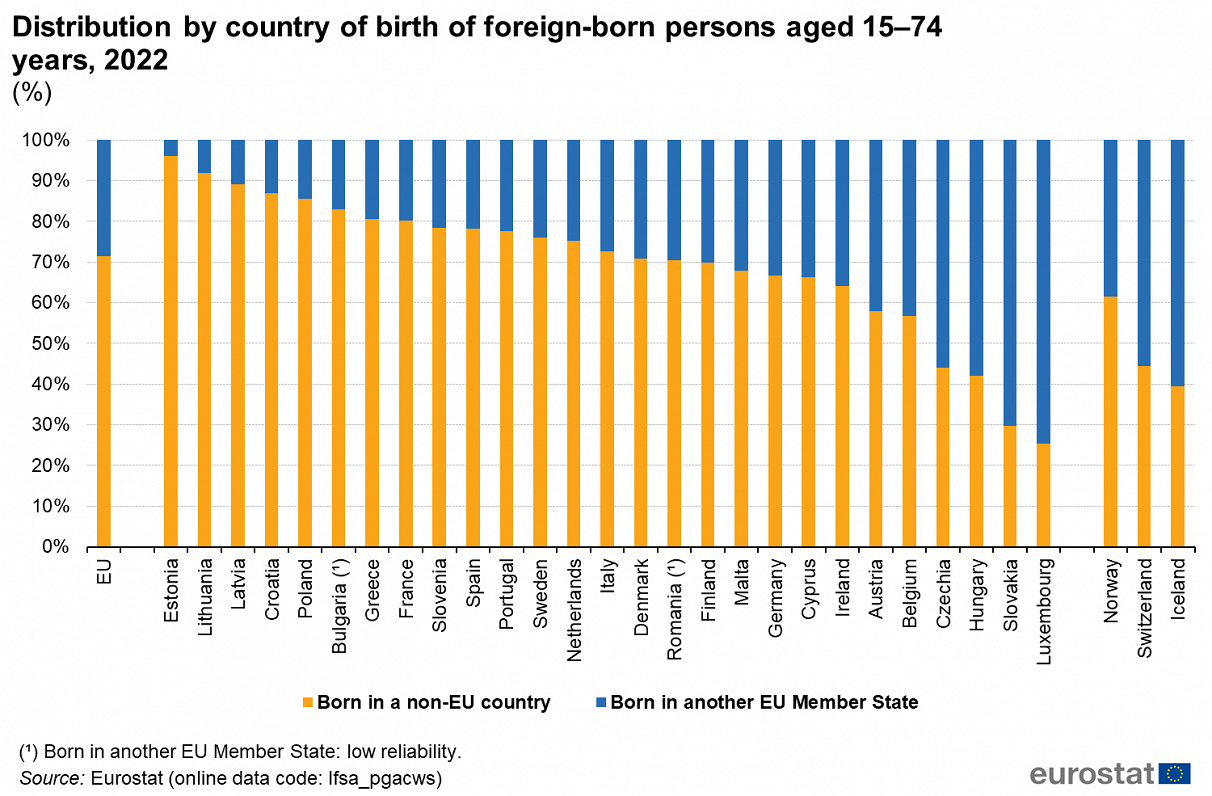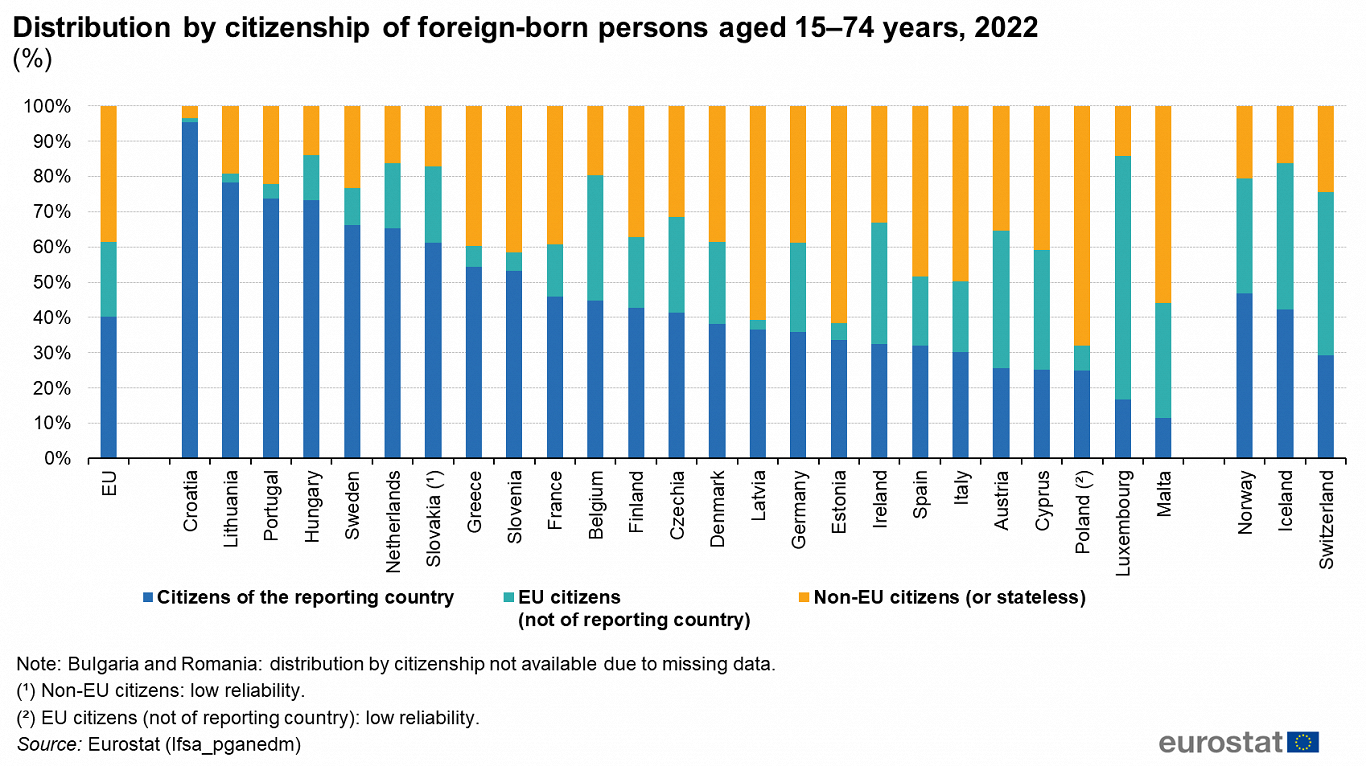In 2022, 28.6 % of foreign-born persons aged 15-74 years living in the EU had been born in another EU Member State compared with a much larger share of 71.4 % who had been born in a non-EU country.
For the Baltic states the split was different at around 10% and 90% respectively.

"In 2022, there were 23 EU Member States where a majority of foreign-born persons aged 15-74 years had been born in a non-EU country. The four exceptions, where a majority of foreign-born persons had been born in another EU Member State, were Luxembourg, Slovakia, Hungary and Czechia.
"The highest shares of foreign-born persons born in a non-EU country were in the three Baltic Member States: Latvia, Lithuania and Estonia," said Eurostat.
"The Baltic Member States had the highest shares of foreign-born persons who were born in a non-EU country (89.1-96.0 %). In Lithuania, this was combined with a relatively low share of foreign-born persons (5.1 %), whereas the share of the foreign-born persons in Latvia and Estonia was higher (11.3 % and 13.4 %, respectively) however still below the EU average."

It's worth noting however that being foreign-born does not necessarily mean holding a foreign passport. The Eurostat data shows that more than a third of Latvia's foreign-born population are Latvian citizens. In Lithuania, more than three-quarters of the foreign-born population are Lithuanian citizens.





























